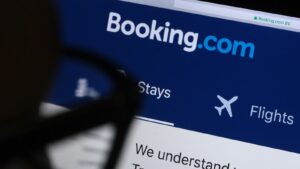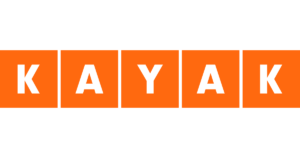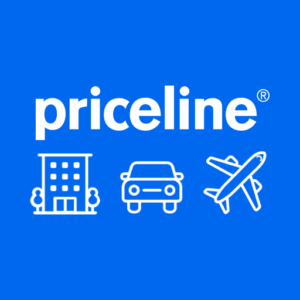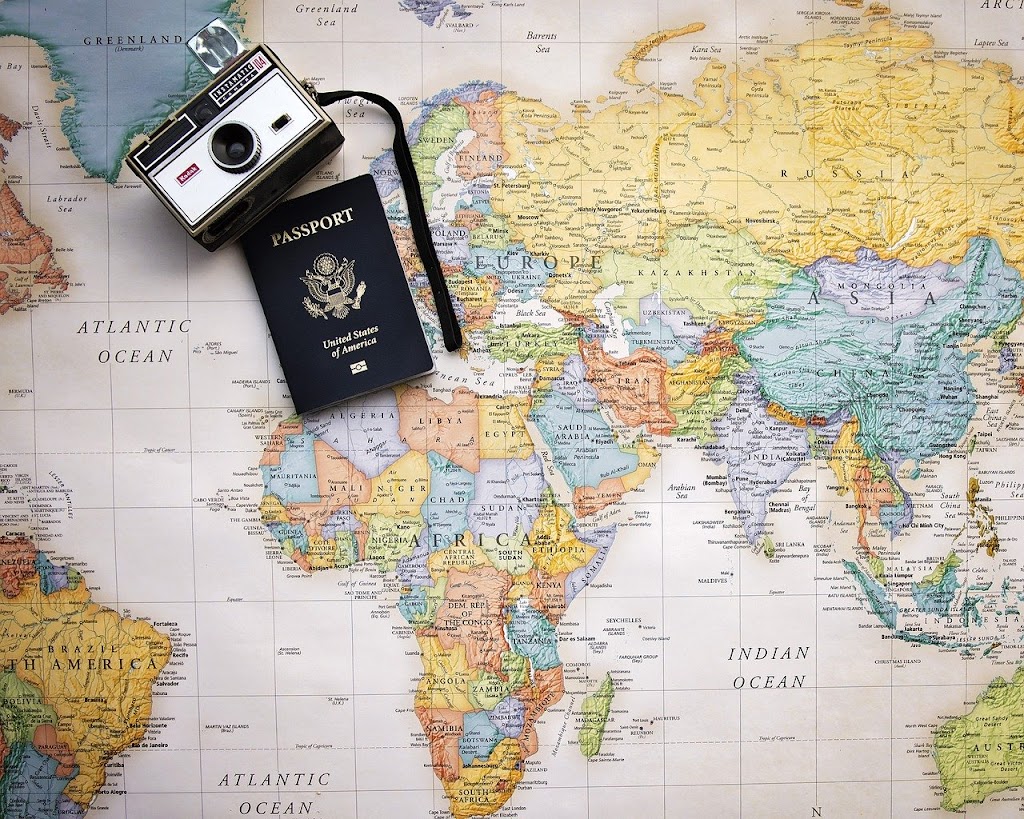Planning a vacation can be exhilarating, but it can also be a source of anxiety. Coordinating flights, accommodations, activities, and ensuring everything goes smoothly can be overwhelming. This is where vacation planners come to the rescue. They can transform your travel dreams into reality. In this comprehensive guide, we will explore the art of mastering vacation planners, and how they can lead you to stress-free getaways.
The Significance of Vacation Planners
Vacation planners are more than just tools; they are your travel companions. They simplify the intricate process of trip planning, ensuring every journey is memorable. Their significance lies in the ability to save time, minimize stress, and create a well-organized adventure.
Why Stress-Free Getaways Matter
Stress-free getaways are essential for mental rejuvenation. Escaping everyday hassles is one of the main reasons we travel. A well-planned trip can help you relax, explore new horizons, and create lasting memories.
Understanding Vacation Planners
Imagine you’re about to embark on a dream vacation. You’ve chosen the destination, you’ve packed your bags, and you’re ready for an adventure of a lifetime. But wait – there’s a catch. You have to plan every detail of your trip, from booking flights to finding the perfect accommodations and scheduling activities. This can be a daunting and time-consuming task, and this is where vacation planners come into play. Let’s explore what vacation planners are and how they can be your best allies in creating a memorable journey.
Vacation planners are comprehensive tools or services that help you organize your travel itinerary. They encompass various aspects of your trip, from booking flights and accommodations to scheduling activities and managing budgets.
Types of Vacation Planners
- Online Travel Agencies (OTAs): These platforms offer a wide range of travel services, including flight and hotel bookings, and often provide tools for planning your entire trip.
- Travel Agencies: Traditional travel agencies offer a personalized touch. They connect you with experts who can tailor your trip to your desires.
- DIY Travel Planning: Some prefer the hands-on approach, crafting every detail themselves. While this can be more work, it offers full control over your itinerary.
Benefits of Using Vacation Planners
- Time-Saving: Planners automate much of the research and booking process, saving you countless hours.
- Cost-Efficiency: They often help you find the best deals and discounts, maximizing your budget.
- Expertise and Recommendations: Whether through travel agents or advanced algorithms, planners offer valuable insights and suggestions to enhance your journey.
Choosing the Right Vacation Planner
Once you’ve recognized the importance of vacation planners and have a basic understanding of what they entail, the next crucial step is choosing the right one. Your choice can significantly impact the quality of your travel experience, so it’s essential to make an informed decision. In this section, we’ll explore the steps and considerations for selecting the perfect vacation planner for your needs.
Assessing Your Travel Needs
Understanding your travel style and preferences is crucial. Are you an adventure seeker or a leisure traveler? Do you prefer luxury or budget-friendly options? Knowing this will help you choose the right planner.
Researching and Comparing Options
Take your time to explore various planners. Read reviews, seek recommendations from fellow travelers, and compare their offerings. What works for one person may not suit another.
Reading Reviews and Testimonials
Feedback from previous users is invaluable. It offers real-life insights into the planner’s performance and customer satisfaction.
Booking Direct vs. Using a Planner
Sometimes, booking directly with airlines or hotels can be beneficial, especially for simple trips. However, planners excel in complex itineraries and added perks.
DIY vs. Professional Vacation Planning
As you embark on your journey to plan the perfect getaway, one of the key decisions you’ll face is whether to go the DIY (Do-It-Yourself) route or opt for professional vacation planning services. Each approach has its merits and drawbacks, and the choice depends on your preferences, experience, and the type of travel experience you seek. Let’s dive into the pros and cons of both DIY and professional vacation planning to help you make an informed decision.
Pros and Cons of DIY Planning
Flexibility: DIY planning allows you to create a truly custom itinerary. You can change plans on the fly, explore hidden gems, and embrace spontaneity.
Control: You have full control over your trip. Every detail is in your hands.
Learning Experience: Planning your own trips can be a valuable learning experience. You’ll gain insights into logistics and gain a deeper understanding of your travel style.
Pros and Cons of Professional Planning
Expertise: Travel agents and advanced planner algorithms offer expertise that can enhance your journey. They know the best routes, accommodations, and activities.
Convenience: Professional planners take the hassle out of planning. You provide your preferences, and they create an itinerary for you.
Time Savings: If you have a busy schedule, professional planners can save you countless hours of research and booking.
Maximizing the Use of Online Travel Agencies (OTAs)
Online Travel Agencies, commonly known as OTAs, have revolutionized the way travelers plan and book their trips. These digital platforms offer a wide range of services and features to simplify the travel planning process. To help you make the most of your travel experience, let’s explore how you can maximize the use of OTAs. Not all OTAs are created equal, and different platforms cater to various travel styles. Here’s how to choose the right OTA for your specific needs:
5. Expedia

Travel Style: Expedia is a versatile OTA suitable for various travel styles. It offers a wide range of options, from budget to luxury.
Why Choose Expedia: Expedia is known for its user-friendly interface and extensive database of accommodations, flights, and activities. It’s a solid choice for travelers seeking convenience and variety.
4. Booking.com

Travel Style: Booking.com is excellent for travelers who prioritize accommodations. It offers an extensive selection of hotels, resorts, and alternative lodging options.
Why Choose Booking.com: Booking.com is renowned for its vast inventory of accommodations worldwide. It’s an ideal choice for those who want to focus primarily on finding the perfect place to stay.
3. Kayak

Travel Style: Kayak is a meta-search engine that’s great for price-conscious travelers who want to compare and find the best deals.
Why Choose Kayak: Kayak allows you to search for the best prices on flights, accommodations, and rental cars across various websites. It’s an excellent choice for those who want to ensure they’re getting the most value for their money.
2. Airbnb

Travel Style: Airbnb is perfect for travelers looking for unique and personalized lodging experiences.
Why Choose Airbnb: Airbnb offers a wide range of accommodations, from private homes and apartments to treehouses and houseboats. If you want to immerse yourself in local culture, Airbnb can provide a more authentic experience.
1. Priceline

Travel Style: Priceline is a budget-conscious traveler’s dream, offering the opportunity to name your own price for accommodations.
Why Choose Priceline: Priceline’s “Name Your Own Price” feature allows you to bid on hotel rooms at a price you’re comfortable with. This can result in substantial savings on accommodations.
Read – Top Three Daytrips from Madrid
Tips for Efficient OTA Usage
Once you’ve chosen the OTA that aligns with your travel style, it’s time to make the most of its features. Here are some tips for efficient OTA usage:
Price Comparisons
OTAs often allow you to compare prices for flights, accommodations, and rental cars across multiple platforms. Take advantage of this feature to ensure you’re getting the best deal. Price comparison tools can help you make informed decisions and save money.
Bundling Options
Many OTAs offer package deals that combine flights, accommodations, and rental cars. Bundling these elements can often result in significant savings. Consider bundling when it makes sense for your trip.
Loyalty Programs
Several OTAs have loyalty programs that reward frequent users with discounts and perks. Sign up for these programs and take advantage of the benefits they offer. Accumulating loyalty points can lead to significant savings over time.
Read Reviews and Ratings
Before booking accommodations, take the time to read reviews and ratings from previous travelers. These insights can help you make an informed choice and avoid unpleasant surprises. Look for properties with consistently positive feedback.
Explore Activities and Excursions
Many OTAs offer the option to book activities and excursions at your destination. Research and select experiences that align with your interests. Booking activities in advance can help you make the most of your time at the destination.
Consider Payment Options
OTAs typically offer various payment options, including credit cards, debit cards, and sometimes even alternative methods like PayPal. Consider the payment method that works best for you and offers added security during your transactions.
Set Fare Alerts
If you’re flexible with your travel dates, set fare alerts on OTAs. These alerts will notify you when prices drop for flights and accommodations. Being adaptable with your travel dates can lead to significant savings.
By following these tips, you can efficiently use OTAs to your advantage and create a travel experience that meets your specific needs and preferences. OTAs offer a wealth of options and resources, allowing you to plan and book your trips with ease and confidence.
Mastering DIY Travel Planning
Are you an independent traveler seeking to master the art of DIY (Do-It-Yourself) travel planning? Embarking on a self-guided journey can be immensely rewarding, allowing you to create a personalized adventure that aligns with your unique interests and preferences. Here’s how to excel in the world of DIY travel planning:
Explore Your Interests
Begin your journey by exploring your interests and passions. What kind of experiences are you seeking? Whether it’s exploring cultural heritage, indulging in culinary adventures, or embarking on outdoor adventures, understanding your interests is the first step in crafting your perfect trip.
Destination Selection
Once you’ve identified your interests, start researching destinations that match your criteria. Consider factors such as climate, culture, safety, and accessibility. Destination research is an exciting phase that sets the stage for your entire trip.
Create a Travel Itinerary
With your destination in mind, start building your travel itinerary. Outline the places you want to visit, the activities you’d like to engage in, and the duration of your stay at each location. Prioritize your must-see attractions while allowing room for flexibility.
Budget Planning
Establish a budget for your trip. Consider all expenses, including flights, accommodations, meals, activities, transportation, and unexpected costs. Research the cost of living in your chosen destination to get a better understanding of daily expenses.
Accommodation Research
Research and book accommodations that align with your travel style and budget. Consider staying in hotels, hostels, vacation rentals, or even boutique guesthouses. Read reviews, look at photos, and choose accommodations that offer comfort and safety.
Transportation
Plan how you’ll get from one place to another. Research transportation options such as flights, trains, buses, or rental cars. Take into account factors like travel time, convenience, and cost. Booking transportation tickets in advance can save you both time and money.
Tips and Tools for Effective DIY Planning
Planning your own trip can be an exciting and rewarding experience, but it’s essential to have the right tips and tools at your disposal to ensure a successful journey. Here’s a guide to effective DIY travel planning:
Travel Apps
Make the most of travel apps and tools to streamline your planning. Applications like Google Maps, TripIt, and Airbnb can help with navigation, itinerary organization, and accommodation bookings.
Travel Insurance
Prioritize travel insurance to protect yourself in case of unexpected events like trip cancellations, medical emergencies, or lost baggage. It’s an essential component of DIY planning that provides peace of mind.
Learn Basic Phrases
If you’re traveling to a foreign country, learn some basic phrases in the local language. This can go a long way in enhancing your travel experience, as locals often appreciate tourists who make an effort to communicate in their language.
Currency Exchange
Familiarize yourself with the currency exchange rates and know where to exchange your money. It’s also a good idea to carry some local currency for immediate expenses upon arrival.
Local Tips
Seek out local tips and recommendations from travel forums, blogs, or social media groups. Locals and experienced travelers can offer valuable insights into off-the-beaten-path attractions, authentic dining experiences, and hidden gems.
Staying Stress-Free Throughout Your Vacation
Prioritizing Self-Care
Amid the excitement of exploring new places, don’t forget to prioritize self-care. Take breaks, stay hydrated, and get enough rest to ensure you have the energy to fully enjoy your journey.
Emergency Planning
Prepare for the unexpected by creating an emergency plan. Have essential contact numbers, travel documents, and a medical kit on hand. Knowing what to do in case of emergencies can reduce stress during your trip.
Travel Insurance and Safety
Safety should always be a top priority. Ensure your travel insurance covers potential emergencies and that you have copies of important documents like your passport and visas. Familiarize yourself with local emergency numbers and embassy locations.
Handling Unexpected Situations
Sometimes, travel doesn’t go as planned. Flight delays, itinerary changes, or unforeseen obstacles can happen. Stay flexible and maintain a positive attitude when facing unexpected situations. Adaptability is key to a stress-free experience.
Mastering DIY travel planning requires careful research, meticulous planning, and a willingness to embrace both the expected and the unexpected. By creating a well-thought-out itinerary, staying within your budget, using travel apps and tools, and being prepared for any situation, you can ensure that your DIY journey becomes a memorable adventure. The true essence of DIY travel lies in the freedom to explore on your own terms, creating lasting memories that are uniquely yours.
Conclusion
In the world of travel planning, mastering vacation planners can lead to stress-free getaways. The key is understanding your needs, choosing the right planner, and staying adaptable. Whether you opt for the independence of DIY planning or the convenience of professional services, the goal is the same: to create unforgettable travel experiences.
In conclusion, mastering vacation planners can be a game-changer in ensuring your travel adventures are stress-free and memorable. Whether you choose the DIY route or rely on professional help, the key is to plan thoughtfully, adapt to unforeseen circumstances, and embrace the joy of exploring new horizons. Travel is not just about reaching a destination; it’s about savoring the journey itself.
Frequently Asked Questions (FAQs)
What are the best vacation planner apps?
Numerous apps can assist in planning your vacation, such as TripIt, Airbnb, and Skyscanner. The best one depends on your specific needs and preferences.
How far in advance should I plan my vacation?
Planning in advance, typically 3-6 months ahead, allows you to secure the best deals and accommodations. However, spontaneous trips can also be delightful if you’re flexible.
What’s the average cost of using a travel agency?
The cost of using a travel agency can vary. Some may charge fees, while others earn commissions from bookings. Be transparent about your budget with your chosen agency.
Do vacation planners offer budget-friendly options?
Yes, vacation planners can help you find budget-friendly options. Online Travel Agencies often provide tools for finding the best deals, and travel agents can work within your specified budget.
How do I ensure a stress-free vacation when planning it myself?
Careful research, comprehensive planning, and flexibility are the keys to a stress-free DIY vacation. Be prepared for the unexpected and maintain a positive attitude throughout your journey.





No Comments